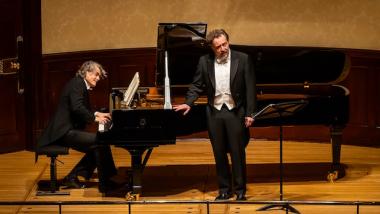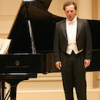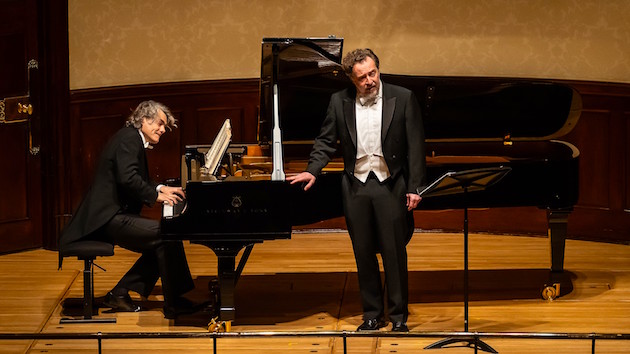
On Tuesday night, Oct. 22, baritone Christian Gerhaher and pianist Gerold Huber returned to San Francisco for the third time to captivate audiences at the Herbst Theatre. The duo gave a moving and thoughtful recital of lieder by Gustav Mahler, and it was a true joy to witness these experts who have devoted themselves to lied interpretation.
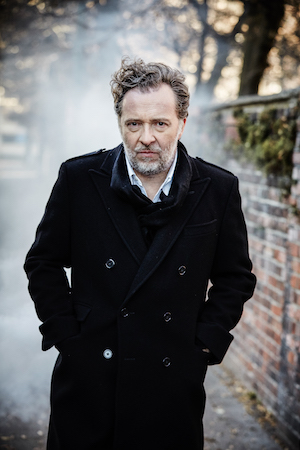
The all-Mahler program included three of the composer’s major works. The highly emotional four-part song cycle Lieder eines fahrenden Gesellen (Songs of a Wayfarer) details the narrator’s anguish at his lost love, and Mahler himself penned the text for the work. Kindertotenlieder (Songs on the Death of Children) is another noticeably anguished series in which Mahler set five poems written by Friedrich Rückert after his children’s death from scarlet fever. The folk song selections from Des Knaben Wunderhorn (The Boy’s Magic Horn) allowed for a respite from the otherwise intense subject matter. “Um schlimme Kinder artig zu machen” (To teach naughty children to be good), for example, expressed a playful warning interspersed with many cuckoos, ending with a chuckle from the audience. The concert thus benefited from its programming of a dramatic arc and that these familiar songs were given such a wonderful performance.
Having begun while they were in at school in Munich, Gerhaher and Huber have been performing lieder together for more than 30 years. The intimate, well-lit Herbst Theatre allowed them a tangible connection with the audience, and Gerhaher’s performance was personal and dramatic as he expressed the narratives of each song. Moving from the tragic Lieder eines fahrenden Gesellen to the light-hearted subjects of Des Knaben Wunderhorn, and once again to the anguish of Kindertotenlieder, Gerhaher flawlessly embodied each character in turn, displaying impressive flexibility and artistic control. During “Die zwei blauen Augen” (The two blue eyes), his voice shrank to nearly a whisper, but was still completely clear. The climax of “Nun seh’ ich wohl, warum so dunkle Flammen” (Now I see well, with such dark flames) created some especially lovely moments, as did the amazing power and resonance behind “Der Schildwache Nachtlied” (The sentinel’s nightsong).
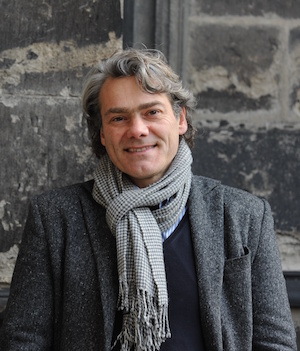
Huber’s playing was equally sensitive and deliberate. Much more than an accompanist, Huber has been an equal partner in this duo since its inception. He brought a nimble energy to the stage, and shone especially in Mahler’s temperamental changes of mood and atmosphere. His rendition of the gently twinkling piano melody during “In diesem Wetter” (In this weather) brought the program to a gentle and spellbinding conclusion.
Of course, a rousing ovation encouraged them to tack on “Urlicht,” another selection from Des Knaben Wunderhorn and known for its incorporation into Mahler’s “Resurrection” Symphony. It features the eternal line: “Ich bin von Gott und will wieder zu Gott” (I came from God and will return to God).
Gerhaher and Huber’s artistic partnership and dedication have made a significant mark on the world of lieder, especially that of Schumann — they are in the process of recording the composer’s complete songs in an unparalleled project. It is rare to get the whole package of musical ability, dramatic interpretation, and a thoughtfully constructed program, but the duo’s specialization and expertise turned this this evening of Mahler into an immensely satisfying concert. It is comforting to know that somewhere out there are two German men ardently devoting their lives to lied interpretation and the preservation of these masterpieces.

